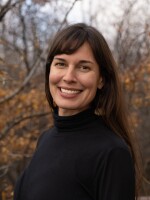Medical professionals at the Yukon-Kuskokwim Health Corporation, like others across the nation, are preparing to care for COVID-19 patients.
On the east coast, the health care industry is under great stress. KYUK’s Katie Basile has been talking to her cousin in Boston, who happens to be on the front lines at Massachusetts General Hospital. Dr. Kelsey Hills-Dunlap specializes in respiratory illness, and she told Basile that she and others on the staff are scared of catching the disease from their patients. They are recycling protective gear, like face masks, face shields, and goggles, which is something that they have never done before.
“And doing anything that is not typical protocol,” said Hills-Dunlap, “I think, makes any physician really on edge. And without a clear idea of exactly what we need to do to protect ourselves, I think people are really, really nervous.”
The hospital still sterilizes the equipment between patients. Hills-Dunlap says that Massachusetts General is trying to prepare for a surge that may use everything they have on hand. They are working 12 and 16-hour days to treat the patients in the hospital now, but the disease is nowhere near its peak, which is expected to arrive sometime later this spring. Alaska is several weeks behind the rest of the country, with case numbers just beginning to climb. The advice Hills-Dunlap has is simple: prepare, and prepare some more.
“The reason why we’ve been able to keep the death rates as low as we have been able to in Massachusetts is because of preparation. And we haven’t seen the worst of it yet. The power of prevention in social distancing; we know that really strict social distancing methods really, actually pay off.”
Many of the patients at Massachusetts General are young, the same age as the doctors and nurses caring for them. Initial information that the virus disproportionately affects the elderly has been replaced with the awareness that it can make anyone sick. That has added to the stress, because there is no cure, and no vaccine to protect those who care for patients from the virus.
“We have seen many patients who are incredibly sick, on full life support, who are in their early 30s with no risk factors whatsoever. It's really, really terrifying. All we do is try to support and help them get through it, and help their own body fight the virus and get better, and buy them time until they can come off of life support. But it’s really, really challenging to watch.”
Hills-Dunlap, who is in the middle of the fight for lives at her hospital, had a warning for those living in remote villages and hoping to keep the virus outside of their homes and neighborhoods. She pointed to the flu epidemic in 1918, when those living in remote communities got the infection from the mailman. She pointed out that in some cases, this coronavirus can survive on surfaces for days. So a package or a letter with a droplet from an infected person on it could be the source of the disease spreading to others.
“We are so dependent on each other for supplies, for communication,” said Hills-Dunlap. “I’m not sure it’s preventable to stop the entry of the novel coronavirus into your communities, unfortunately. But I think it’s absolutely within your power, and the power of the community, to slow the spread and make the damage of this virus as small as possible.”
The advice from doctors like Hills-Dunlap is simple: stay at home, wash frequently-used surfaces down with bleach solution, wash your hands a lot, and stay 6 feet or more away from people. And, if you are around people, wear a mask or face covering over your nose and mouth.
“It absolutely saves lives,” she said.




